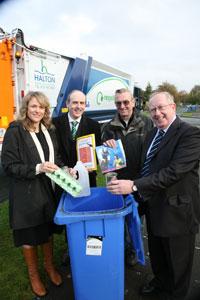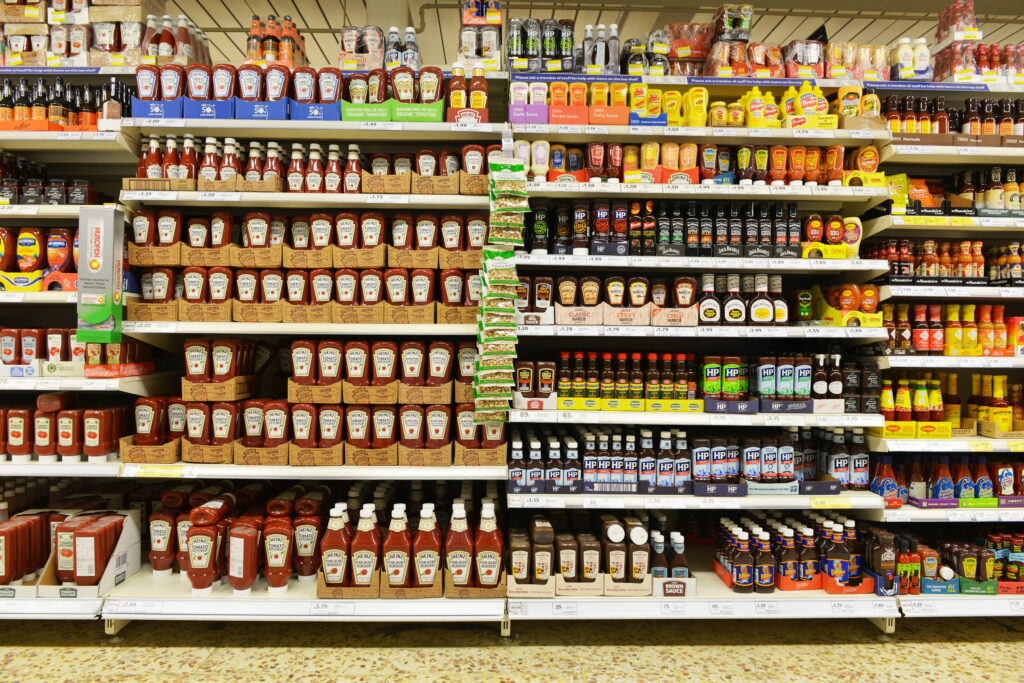A breakdown of how much the RecycleBank recycling rewards scheme could cost councils has emerged as Halton borough council prepares to roll-out the system to all its residents on August 23.
The scheme has been heavily supported by the government, with communities secretary Eric Pickles attending its full roll-out in Windsor and Maidenhead in June, where he called rewards “the modern face of refuse collections” (see letsrecycle.com story).
This support has led to much mainstream media interest in the system and RecycleBank has said that there has also been increased interest among local authorities in adopting the system.
Speaking to letsrecycle.com, Sue Igoe, managing director of RecycleBank, said: “In the last two months we have gone from ‘hey I am interested' to ‘okay, let's talk seriously' with 25 councils, who are now looking to definitely do something. We feel, from there, there are around 25 more in the pipeline for the next six to 12 months. There is a lot of interest and it is great.”
And, while the mainstream media has touted the financial rewards residents can gain from the service – which are up to £135 per year in vouchers and discounts under the Windsor and Maidenhead model – the cost implications for a council adopting the scheme have remained relatively under wraps.
Costs
In a bid to reward residents' for their recycling efforts, councils face a number of capital and current, or running, costs to set-up the system.
One of the first costs is a subscription to RecycleBank to operate the rewards system on their behalf, this can be done in either a ‘flat-rate' of an annual subscription or it can be calculated on landfill diversion. This would see councils pay RecycleBank a percentage of the money they would potentially save on landfill disposal costs by virtue of increasing their recycling rate under the RecycleBank system.
In exchange for this subscription, RecycleBank monitors, collates, audits and awards ‘reward points' to households, as well as attracting ‘reward partners', such as local and national stores, to join the scheme. The ‘reward partners' provide vouchers free of charge under the corporate social responsibility schemes.
As well as the cost to RecycleBank, there is also capital cost of rolling out 240 litre blue-wheeled bins if the council does not possess them already. This is in addition to a charge to fit or retrofit radio frequency identification devices (RFIDs) to the bins to store weight information and also the cost of fitting weighing technology and data storage software to waste collection vehicles.
These costs, as well as costs to maintain the service and pay for the reprocessing of additional material, mean the system could be in operation for over 12 months before councils make monetary savings from the scheme.
Breakdown
The outlay for the system is in the charges for reprocessing additional tonnages of recyclable material and also in paying RecycleBank to run the rewards scheme.
However, the documents indicate that these costs will be offset by a contribution from its waste collection contractor Veolia Environmental Services of £50,000 in 2010/11 and £60,000 in 2011/12 – as well as predicted savings from landfill diversion.
The council states that an increase of 20% of recyclable material collected under the RecycleBank scheme in 2010/11 would save it £84,000 in landfill disposal costs – while a 25% increase would potentially save it £106,000, a 30% increase would save it £127,000 and achieving an additional 35% would see it save £148,000 in disposal costs.
And, these costs would increase again over the course of 2011/12, with it predicted that a 20% increase in recyclable material collected would lead to a £206,000 saving, while £266,000 savings could be realised from a 25% increase. These could potentially rise even further to £326,000 with a 30% increase in material and a £389,000 saving from a 35% increase.
One of the main costs for the council in adopting the scheme would be in paying RecycleBank itself to administer the scheme, with Windsor and Maidenhead currently paying a flat rate of £77,000 to RecycleBank for 2010/11, rising to £144,000 over the course of 2011/12. Halton also pays a flat rate for the scheme, although the exact costs have not been divulged.
Revenue Neutral
When comparing the costs of paying RecycleBank and processing more recyclables against the potential landfill savings and Veolia's contributions, Windsor and Maidenhead predicts it would need to have accrued 25% additional material in 2011/12 for the system to become revenue neutral.
And, if the council could then increase the amount of recyclables collected by to 30% it would achieve £45,000 in budgetary savings in 2011/12 and £95,000 in savings if it manages to increase this figure to 35%.
In council documents from March 2009, ahead of the first trial of the RecycleBank scheme, Windsor and Maidenhead stated that there were likely to be £1.25 million in capital costs for a full roll-out of the scheme, with the majority of that cost being spent on issuing householders with 240 litre blue bins at £25 per container.
This would be coupled with an increase of £250,000 on existing costs of running the system, as the RecycleBank service would require the introduction of an extra collection round for residents. However, the document stresses that there would be associated reduction in landfill disposal costs.
The first incarnation of the scheme in the UK saw Windsor and Maidenhead offer participants up to £40 per year for the recycling of green waste, with this rising to a potential total of £135 per year when the system was expanded to encompass dry recyclables.
Halton
The trial cost the council £63,700 to carry-out, according to a report issued to the its executive by the council's strategic director for environment in June 2009.
The costs for this were incurred by paying the subscription to RecycleBank and employing Irish firm AMCS to retrofit the 240 litre blue wheeled bins for the 10,000 households in the trial areas with radio frequency identification devices (RFIDs), which store the weight and rewards details of the bins.
And, costs were also incurred in fitting two of the councils refuse collection vehicles with the necessary bin-weighing equipment and data storage software. The council theorised that the roll-out of the scheme would cost £89,600 for all bins for 42,000 Halton households to be fitted with RFIDs, and there would be an annual maintenance charge for the tags of £11,400.
However, Halton claims that through the expansion of the system it could save: £62,000 to £88,000 in 2010/11; £78,000 in 2011/12; £94,000 in 2012/13; and up to £110,000 in 2013/14.
Halton had an advantage over Windsor and Maidenhead in adopting the system, as it already operated a kerbside, commingled collection using 240 litre wheeled bins. Whereas, Windsor and Maidenhead had to pay for the delivery of wheeled bins to replace its existing twin-stream box system.
Future
In addition to the 25 local authorities contemplating the service, RecycleBank said it is also working on broadening its offering to include flats recycling and it is hopeful of having a pilot scheme with a London borough “in the next 18 months”.
“We absolutely expect to have a London borough trialling the programme with flats recycling very soon and then we will be trying a complement to the kerbside solution in our existing client base,” said Ms Igoe.
Furthermore, RecycleBank is assessing the potential for a source-separation version of the service – as it is currently based on the use commingled dry recyclable collections.
Ms Igoe said: “The beginning of the next phase is to use the rewards for a kerbside sort programme. We obviously recognise the thought that a regime change and investing in bins maybe investing to save but we are trying to show we have a system which is flexible.”










Subscribe for free